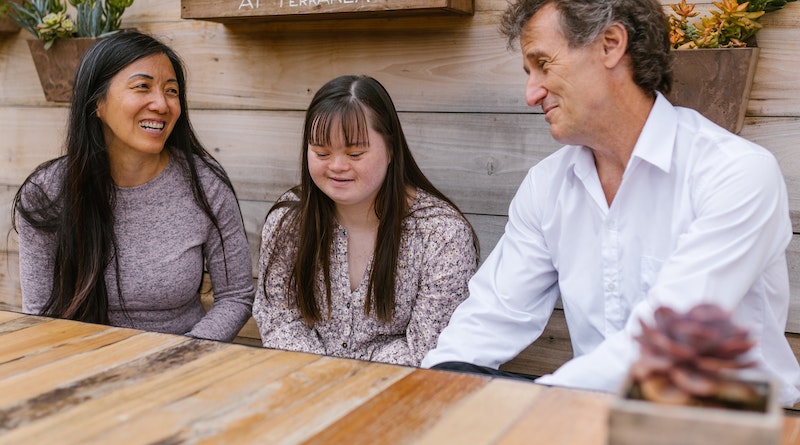How to Develop Your Child’s Critical Thinking Skills
As parents, we want our children to be successful in all aspects of life. One of the most important skills for success is critical thinking, which is the ability to reason effectively and think logically. Developing this skill in children can be a challenge, but with the right tools and guidance, it can be done.
In this blog post, we will explore how to use different tools to help your child develop their critical thinking skills. We’ll discuss techniques to help them evaluate information, ask questions, and draw conclusions. With these tips, you can give your child the foundation they need to become a critical thinker.
Encourage questioning to promote Critical Thinking Skills
One of the most effective ways to help children develop their critical thinking skills is to encourage them to ask questions. By encouraging children to question the things they see, hear and experience, you can help them learn to form their own opinions and explore different perspectives.
When your child asks a question, take the time to respond thoughtfully and explain the answer in detail. Encourage further exploration by suggesting additional questions they might want to consider. Even if your child’s questions don’t always have straightforward answers, you can still use them as an opportunity to discuss different viewpoints and opinions.
You can also stimulate your child’s questioning by reading stories together and discussing the characters, settings and events. Ask your child what they think about the characters’ decisions and why. By engaging in these types of conversations, you can help your child gain a deeper understanding of the world around them.
Promote open-ended tasks and activities
One of the best ways to encourage critical thinking in children is to engage them in activities that challenge them to think for themselves. Open-ended tasks and activities are an excellent way to get your child’s creative juices flowing and help them develop their critical thinking skills.
Open-ended activities give children the freedom to come up with their own solutions to problems or explore their own interests. Examples of open-ended activities include art projects, puzzles, and even simple everyday activities such as sorting laundry or washing dishes. By giving your child some autonomy and creative space, you’re allowing them to problem solve and think for themselves.
Open-ended activities also provide opportunities for collaboration. Working together on a project or task helps children learn how to communicate effectively and think critically. Tasks such as cooking, gardening, or building something together can also help foster communication and creativity.
In addition, open-ended tasks can help build resilience and perseverance in children as they work towards a solution. By giving them the freedom to experiment and fail without fear of judgement or failure, they can build the confidence they need to overcome challenges.
Promoting open-ended tasks and activities is an important part of developing critical thinking skills in children. From art projects to simple everyday tasks, by encouraging your child to take risks and think for themselves, you’re providing them with invaluable tools for life-long learning.
Help them understand different points of view
Understanding how to see things from another perspective is an important part of critical thinking. Teaching your child to consider different points of view can help them understand the world around them better, while also giving them a broader understanding of the people they interact with.
One way to do this is by having discussions with your child about current events and different opinions on those topics. Encourage them to look into the opinions of people with different backgrounds, beliefs, and experiences than their own. Help them think critically about why someone might have a certain viewpoint and why it’s important to respect those beliefs.
Another way to help them understand different points of view is through role-playing. Have your child take on different characters in various scenarios and ask them to explain what that character would do or say in response to a situation. This will give them practice in understanding different motivations and why people might take certain actions.
Finally, reading books from different authors and cultures can help your child understand different perspectives. When choosing books for your child, try to find stories that portray characters from different backgrounds and worldviews. This will help your child learn more about how other people think and act.
By helping your child understand different points of view, you’re giving them the tools to think critically and become an empathetic and well-rounded person.
Interpret Tarot Cards Together to practice Critical Thinking Skills
Playing Tarot card games with children can be an excellent way to stimulate their critical thinking skills. This activity can help children understand and make connections between different concepts, as well as think about cause and effect.
When playing a Tarot card game with your child, explain the basics of the cards and their meanings. Explain the different types of cards and how they relate to one another. You could also explain how some cards have opposing views, such as a Strength card opposed to a Weakness card, or a Love card opposed to a Hate card.
Encourage your child to draw connections between the cards and come up with their own interpretations. Have them explain why they think certain cards have specific meanings and ask them what message each card could be conveying.
Make sure to ask open-ended questions throughout the game, such as “What do you think this card means?” and “What do you think will happen next?” This will help your child think critically and come up with creative solutions to problems.
Playing Tarot card games with your child is a great way to get them thinking critically. It can help them make connections between different concepts, understand opposing points of view, and think about cause and effect. With the right guidance, your child will develop valuable critical thinking skills that will last a lifetime.
Teach them how to make connections
Helping your child develop their critical thinking skills also involves teaching them how to make connections between different concepts and ideas. This is an important skill that will help them to reason more effectively and draw better conclusions.
One way to do this is to encourage your child to use analogies, metaphors, and similes to explain the relationship between two concepts. For example, you can ask them to explain why the sun is like a yellow balloon. This will help them understand the relationship between size, color, shape, and other properties.
You can also help your child make connections by introducing them to activities that require them to think critically. For example, you could have them play a game that requires them to connect different objects or images. This will help them see how different elements work together and create a bigger picture.
Encourage them to ask for help
Asking for help is an important life skill, and is a great way to boost critical thinking skills. When children ask for help, they are empowered to think critically and come up with solutions on their own.
Asking for help does not mean admitting failure. Rather, it shows they understand the importance of seeking guidance and understanding from others.
Model asking for help yourself and encourage them to do the same. Show them how to do research online and how to ask questions in forums or discussion groups. Also, show them how to break down big problems into smaller tasks, and reach out for help.
Finally, let them know it is okay to admit when you don’t know something. Asking for help can be difficult for some children, but when they do, they expand their knowledge and problem-solving abilities.







Pingback: Tarot Cards can help improve a child's education